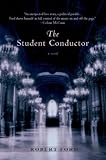 The Elegance of the Hedgehog by Muriel Barbery
The Elegance of the Hedgehog by Muriel BarberyA RESOUNDING FIVE STARS!
It is rare that I am so enticed by the back cover of a book that I pick it up in the store, but when I read the synopsis of The Elegance of the Hedgehog, I did just that. This book is now in my top five favorite books of all time.
The characters are enchanting, yet real. While I found twelve-year-old Paloma to be a bit overwritten at times, her fellow protagonist, Madame Michel, is so engaging and at once heartbreaking and loveable, that the precociousness of Paloma can be forgiven.
And the book is heartbreaking, but not because of the tragedies, but because of the joy. Life, in all its guises, leaps off the pages and finds places in the reader's heart that may have long been hidden. It is that kind of book.
I'm reticent to say "everyone should read this book" because I think it resonated with me according to my life experiences and my personality (I am Paloma and Madame Michel both). I'd give it a try, however. And I'd stick with it...if the intellectual meanderings of Paloma and Renée get tiresome, read quickly until Ozu enters the scene. Then, if you liked The Time Traveler's Wife, I think you'll find the rest of the book to be utterly compelling.





